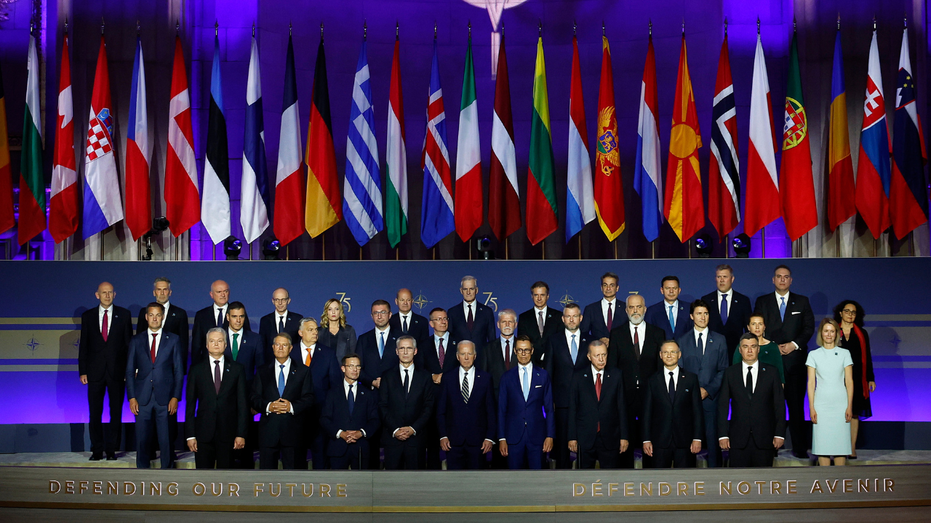Fox News senior national correspondent Rich Edson reports on the highlights of Secretary of State Marco Rubio's push for peace in Brussels on 'Special Report.' For nearly eight decades, the United States has shouldered a disproportionate burden in maintaining global peace, prosperity and order. After World War II, we had little choice.
The world lay in ruins, and America alone had the industrial strength and confidence to lead. We opened our markets, extended our military shield, rebuilt broken nations and underwrote a new international system. But that era is over.

And our policies haven’t caught up. Today, wealthy nations like Germany, France, Japan, South Korea — and yes, Canada — enjoy universal healthcare, world-class infrastructure and generous social safety nets, all while under-investing in their own defense and benefiting from privileged access to American markets. Their security remains subsidized by U.
S. taxpayers, our troops and defense treaties forged when these nations were fragile and vulnerable. TRUMP ADMIN FIRES NAVY ADMIRAL AT NATO TARGETED BY CONSERVATIVE GROUP Now they are competitors.
They sell into our markets while protecting their own. They underfund defense while relying on us to keep the peace. Meanwhile, our own infrastructure is crumbling, our debt exceeds $36 trillion, and too many Americans remain uninsured, under-trained or economically stuck.
The U.S. says it remains committed to NATO, but wants more from our allies.
FILE: Heads of state pose for a group photo during the NATO 75th anniversary celebratory event at the Andrew Mellon Auditorium on July 9, 2024 in Washington, DC. (Kevin Dietsch/Getty Images) The American people are asking: Why are we still doing this? President Donald Trump’s proposed reciprocating tariffs aren’t just about trade. They mark the clearest signal yet that the era of strategic altruism is ending.
For decades, we accepted lopsided trade deals and tolerated unfair tariffs from allies in exchange for Cold War alignment. That made sense in 1947. Even in 1987.
It doesn’t make sense now. Take Canada. Our friendly neighbor to the north enjoys one of the largest per capita trade surpluses with the United States while protecting key industries like dairy, telecom and energy through tariffs and regulation.
Canada also continues to fail its NATO defense spending commitment, investing only 1.3% of GDP when the standard is 2%. Over the past 18 years, it has under-invested by more than $258 billion.
Yet somehow the outrage is directed at the U.S. for demanding fairness.
Or Europe. Despite facing Russian aggression, many EU countries still fall short of NATO targets, preferring to spend on domestic programs while letting the U.S.
deter their enemies. Russia is no longer the global menace it once was. The war in Ukraine has exposed a brittle, corrupt and backward military.
Its economy is fragile, its influence shrinking, and its population aging. It is not a superpower — it is a wounded regional actor with nuclear weapons. China presents a more sophisticated challenge.
But even it faces a looming demographic collapse, economic slowdowns, and rising global backlash. Our response should not be to double down on outdated security guarantees or trade relationships that favor them more than us. The answer is to refocus America’s power and priorities.
We are still the world’s most powerful nation — economically, militarily, technologically. What we lack is alignment between our global commitments and our national interests. Many NATO allies spent years underfunding their militaries.
FILE: Finnish Air Force F-18 are seen during a NATO Baltic Air Policing drill. (JOHN THYS/AFP via Getty Images) That’s why this moment demands bold action. Incremental change is no longer enough.
We must begin to phase out our role as the primary security guarantor for nations that are fully capable of defending themselves. This includes Europe — and Canada. The U.
S. should remain in NATO but as a strategic deterrent, not the first line of defense. Allies must rearm, reinvest and take responsibility for their sovereignty.
We must also renegotiate or exit trade relationships that disadvantage American workers and industries. If tariffs are the tool, use them with judgment. They are not economic warfare — they are leverage.
They show that America is serious about fairness. Most importantly, we must rebuild at home. Our roads, ports, power grid, schools and healthcare systems need modernizing.
Our industrial base must be restored. Our workforce must be re-skilled. And our economy must be made resilient — not dependent.
Some critics say this strategy risks a trade war. Maybe. But far better to recalibrate now, while we’re strong, than wait until we’re overextended and vulnerable.
CLICK HERE FOR MORE FOX NEWS OPINION Others worry we’ll alienate allies. That’s possible too. But true partnerships require shared sacrifice.
If these countries are our equals, then it’s time they act like it. To those who prefer gradualism and summit diplomacy, I say this: we don’t have the luxury of slow change. The global order is shifting.
Our adversaries and allies alike are watching. We are still the world’s most powerful nation — economically, militarily, technologically. What we lack is alignment between our global commitments and our national interests.
This is a tipping point. If we don’t meet it with strength, we will drift into decline — not because we lacked power, but because we lacked purpose. CLICK HERE TO GET THE FOX NEWS APP America must stop managing the old world and start shaping the new one.
It’s time to stop apologizing for our strength — and start using it to protect our people, our economy and our future. John Rakolta Jr. served as the United States ambassador to the United Arab Emirates.
He is the chairman of the board of directors for Walbridge, one of America’s largest industrial construction firms..
Politics

Global system took advantage of America on trade and defense. That free ride is over

The global free ride has to end. After WWII, the US allowed nations like Germany, France and Japan to rebuild through special trade and defense deals. Now, they need to be fair to America.















